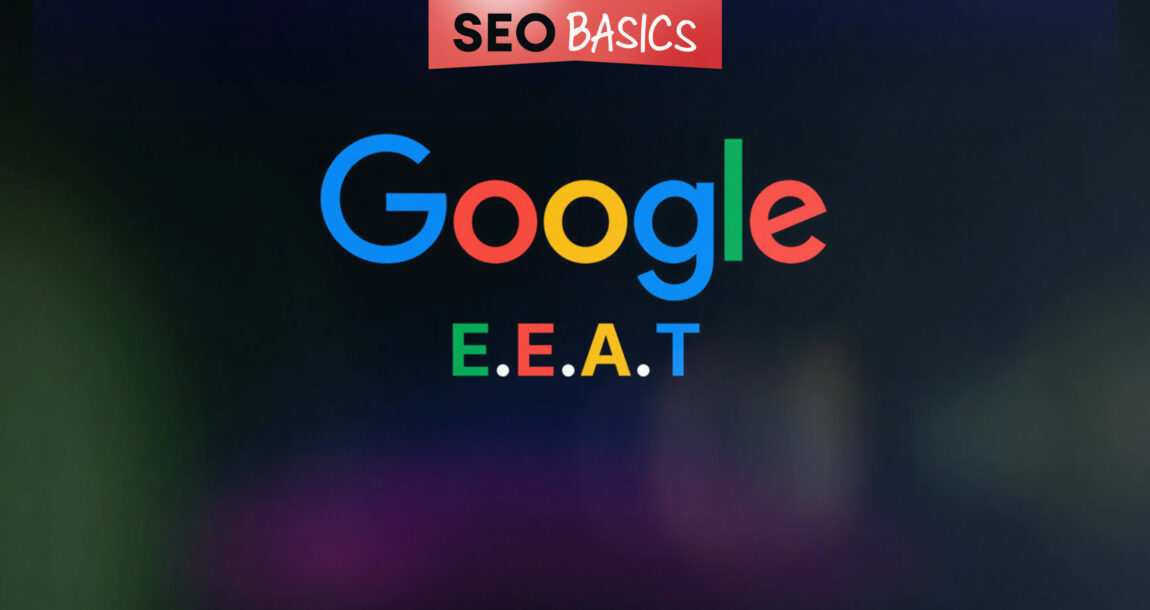SEO Basics: What is Google E-E-A-T and how to use it

Insurance agents looking to increase their organic traffic and gain more qualified leads can employ SEO strategies, such as Google’s E-E-A-T guidelines, according to John Dietrich, principal SEO consultant, Stella Rising.
“E-E-A-T,” explained Dietrich, “is a framework within which you can understand how Google perceives your content.” Google judges your content using the following set of criteria:
- Experience
- Expertise
- Authoritativeness
- Trustworthiness
Search engine optimization (SEO) is the process of improving a website's visibility and traffic from search engines, typically Google. Higher search engine rankings mean a website is more likely to appear in the top 10 search results for a particular search term – for example, the search phrases “get life insurance” or “benefits of whole life insurance.” Appearing in the search results when someone searches for that term will give your agency a better chance of garnering new leads.
“The whole idea is that you’re getting more organic traffic to your website, and Google wants to send users to you because you’re answering their specific needs, supporting them, and offering them what they need. That’s generally almost always going to be a more qualified lead than someone who, let’s say, comes in from an ad,” Dietrich said.
All about content
Google rankings are all about a website’s content. Similarly, SEO is all about optimizing that content to make sure Google recognizes it as highly valuable and gives it the highest ranking.
“The basics of search engine optimization are links and content. So, is your content relevant to the user’s query? Then, does it receive backlinks from other websites? Those are the two very high-level SEO metrics that we look at when Google is determining how to rank a website,” Dietrich said.
Google uses hundreds of ranking factors within multiple algorithms — and these can change frequently. However, E-E-A-T also comprises some of the core components within those algorithms, giving those who can master SEO a leg up.
Experience
The experience part of the E-E-A-T strategy deals with determining whether the author of website content has actual experience in what they are writing about. Dietrich compared this to a PhD student who may have knowledge but not as much real-world experience as a tenured professor or scientist.
Google’s algorithms look to pages like author bios to validate experience.
“What you can do and what you ought to be doing is showcasing author bios that highlight relevant lived experience in whatever subject areas that they have that experience in,” Dietrich said.
This can include personal anecdotes, case studies, hands-on testing, and real-world examples from the author, as well as testimonials from customers.
Expertise
Expertise refers to certifications and other academic accomplishments, such as insurance examinations and other major designations.
“To show higher expertise, you’re going to need qualifications and credentials. Those need to be active and maintained. If it’s a qualification that was achieved 10 years ago, that’s not going to be seen as authoritative as a qualification that was up to date,” Dietrich said.
Authoritativeness
Authoritativeness measures recognition and reputation in the field. For instance, well-known and reputable websites like Amazon or Apple.com have high authority scores.
Dietrich said backlinks — another website linking back to yours — are critical to developing a high authority. But where those links come from matters a lot.
“The backlinks you get need to be from not only higher-authority sites, but also from very relevant sites [to your industry],” he said.
He also suggested maintaining a strong social presence such as on professional networks like LinkedIn, and generating original research and data, which Google finds authoritative and which may be likely to attract backlinks.
Trustworthiness
Trustworthiness pertains to overall credibility and transparency. Dietrich said this can be achieved by:
- Displaying clear contact information and a physical location
- Ensuring contact and physical location info are consistent on company pages, bio, business listings, etc.
- Ensuring business contact, address, name, and title are consistent, even down to LLC
- Establishing transparent policies for privacy and editorial standards and having the privacy policy and editorial standards linked to your website
- Keeping content accurate and updated
- Ensuring the website runs on HTTPS (Hypertext Transfer Protocol Secure), which is a secure version of HTTP that encrypts data between a web browser and a website.
More about content
For insurance advisors or financial professionals new to SEO, Dietrich suggested they focus on creating useful and authoritative content. While most of the E-E-A-T principles can be incorporated into an author bio, he said, content will drive results.
He suggested producing “a lot of high-quality content” that is in-depth enough to cover the topic at hand, is technically accurate and uses appropriate technical terminology the audience can understand.
However, he urged advisors to understand that SEO expertise will not come overnight and they may want to look into hiring professional help.
“It’s a simple formula, but it is hard work and it takes a lot of time. But if you work the program, it will work… You’re getting traffic and then converting that traffic. The more content you produce, the more traffic you’ll get. The more traffic you get, the more business outcomes that will drive for you,” Dietrich said.
Stella Rising is an independent media and marketing agency founded in 1982 and based in New York.
Editor's Note: This is the first part of an ongoing series helping insurance agents and advisors increase traffic and leads using search engine optimization (SEO).
© Entire contents copyright 2025 by InsuranceNewsNet.com Inc. All rights reserved. No part of this article may be reprinted without the expressed written consent from InsuranceNewsNet.com.
Rayne Morgan is a journalist, copywriter, and editor with over 10 years' combined experience in digital content and print media. You can reach her at [email protected].






Enhanced ACA tax credits in the crosshairs in new Trump term
Conduent State Healthcare ruling sets stage for retrial
Advisor News
- Metlife study finds less than half of US workforce holistically healthy
- Invigorating client relationships with AI coaching
- SEC: Get-rich-quick influencer Tai Lopez was running a Ponzi scam
- Companies take greater interest in employee financial wellness
- Tax refund won’t do what fed says it will
More Advisor NewsAnnuity News
- The structural rise of structured products
- How next-gen pricing tech can help insurers offer better annuity products
- Continental General Acquires Block of Life Insurance, Annuity and Health Policies from State Guaranty Associations
- Lincoln reports strong life/annuity sales, executes with ‘discipline and focus’
- LIMRA launches the Lifetime Income Initiative
More Annuity NewsHealth/Employee Benefits News
- PLAINFIELD, VERMONT MAN SENTENCED TO 2 YEARS OF PROBATION FOR SOCIAL SECURITY DISABILITY FRAUD
- Broward schools cut coverage of weight-loss drugs to save $12 million
- WA small businesses struggle to keep up with health insurance hikes
- OID announces state-based health insurance exchange
- Cigna plans to lay off 2,000 employees worldwide
More Health/Employee Benefits NewsLife Insurance News